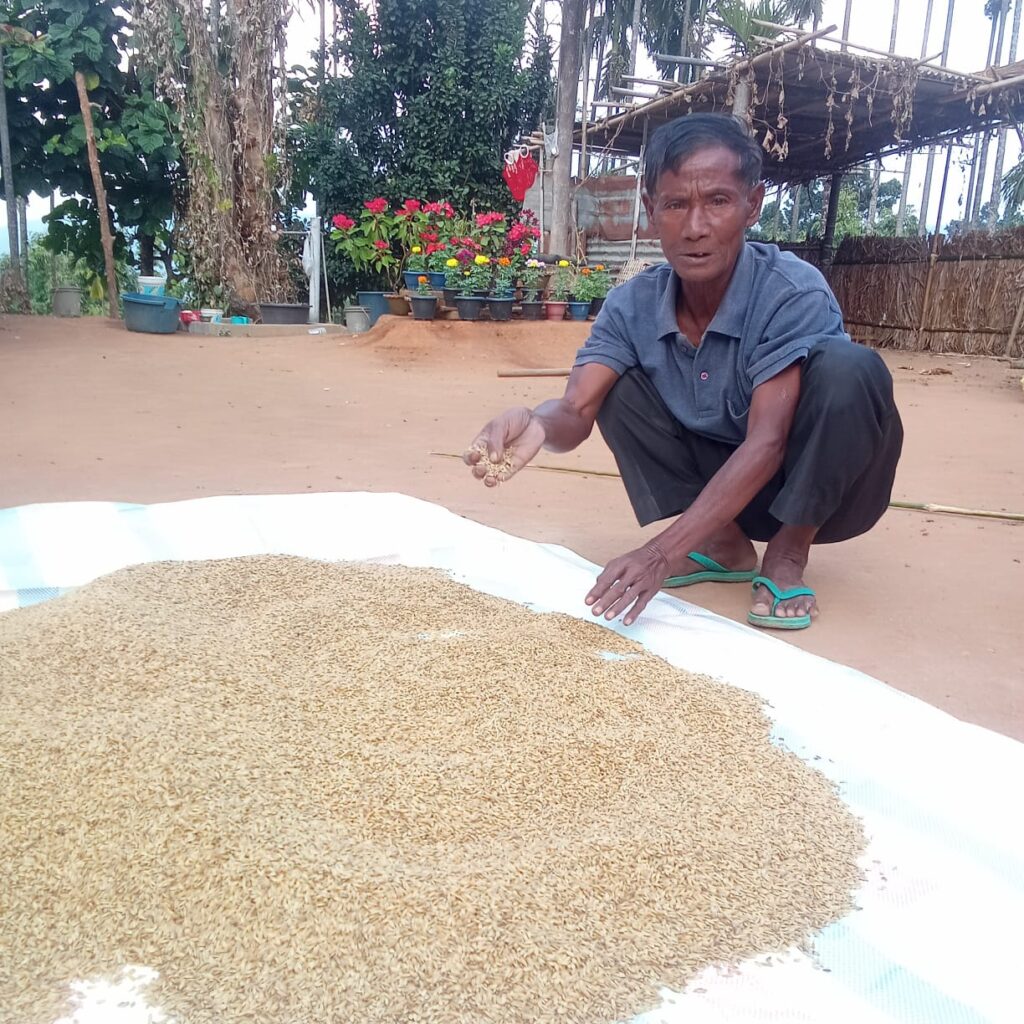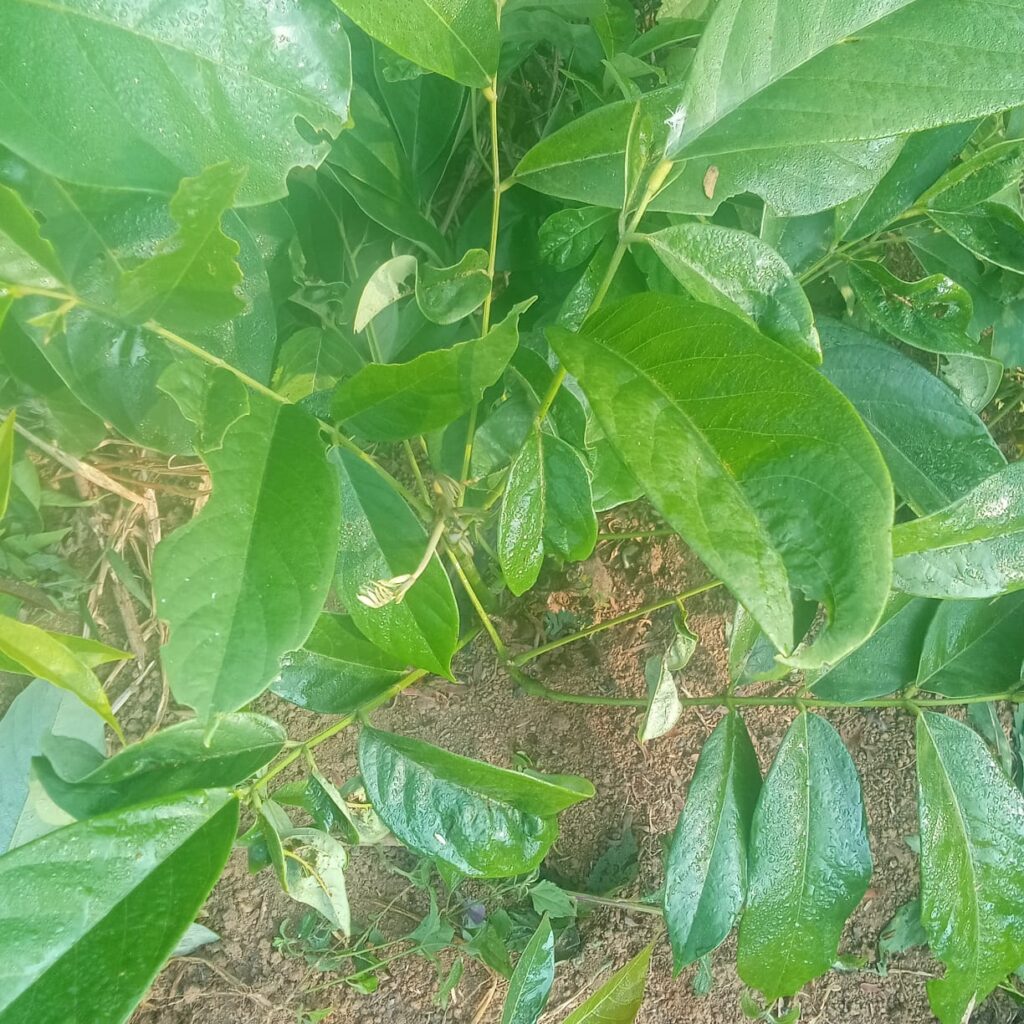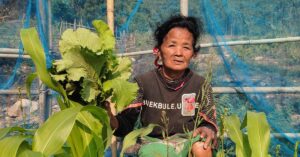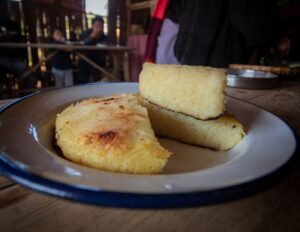Indigenous communities have long been living closely with nature and this is reflected in all walks of their lives. Largely agrarian people, the indigenous community of the Garos in Garo Hills also look to nature and its resources for answers to their everyday problems. Misimagre village, under Rongram Block in West Garo Hills, is one such community which is an active participating village of NESFAS and is part of the ongoing NESFAS’ project “Empowering Indigenous Communities through Agroecology Learning Circles (ALCs) for resilient, integrated and innovative natural resource management”, which is supported by MBMA and funded by the World Bank.

Palenson Ch Marak is an active ALC farmer from this village. At the age of 72 years, he is an indigenous custodian farmer and knowledge holder, living by traditional values and customs even to this day. He had farmed on his paddy field for a good number of years in his younger days. He noticed Gundhi bug infestations and downy mildew caused by Peronospora parasitica in his paddy plants. Such infected plants gave poor yield and thus, his harvest years were affected greatly. As someone who grew up in the lap of nature, Palenson had a good knowledge of plants and their properties. He knew that Fish Poison Climber (Millettia pachycarpa), locally known as makkal was largely used to poison fishes while fishing, and deduced that the same plant will have pesticidal properties. He decided to conduct the experiment on paddy to see if he could bring an end to his farming woes. For every 1000 sq ft area of his paddy field, he took about 250 grams of freshly pounded makkal, mixed it with two liters of water and sprayed the solution on the infested plant parts. To his delight, the infestation not only reduced, but also gave better yield. Having reaped significant success with his trial, he went on to conduct the same experiment year after year, until 2005, when he stopped farming on wet paddy. He thus transferred the idea to his son, Tenison M Sangma, who now uses the same method to ward off pest infestations in maize, which has also given successful results.

The father-son duo has thus been keeping their indigeneity intact with their intergenerational transfer of knowledge of traditional solutions without having to spend money or having to rely on modern interventions of chemical pesticides and insecticides. As happy and proud ALC members, they have also been sharing this knowledge with the NESFAS team and fellow farmers. Such knowledge needs to be shared and such custodian farmers need to be seen and heard so as to achieve the goal of sustainability sooner. NESFAS attempts to document such knowledge systems.



